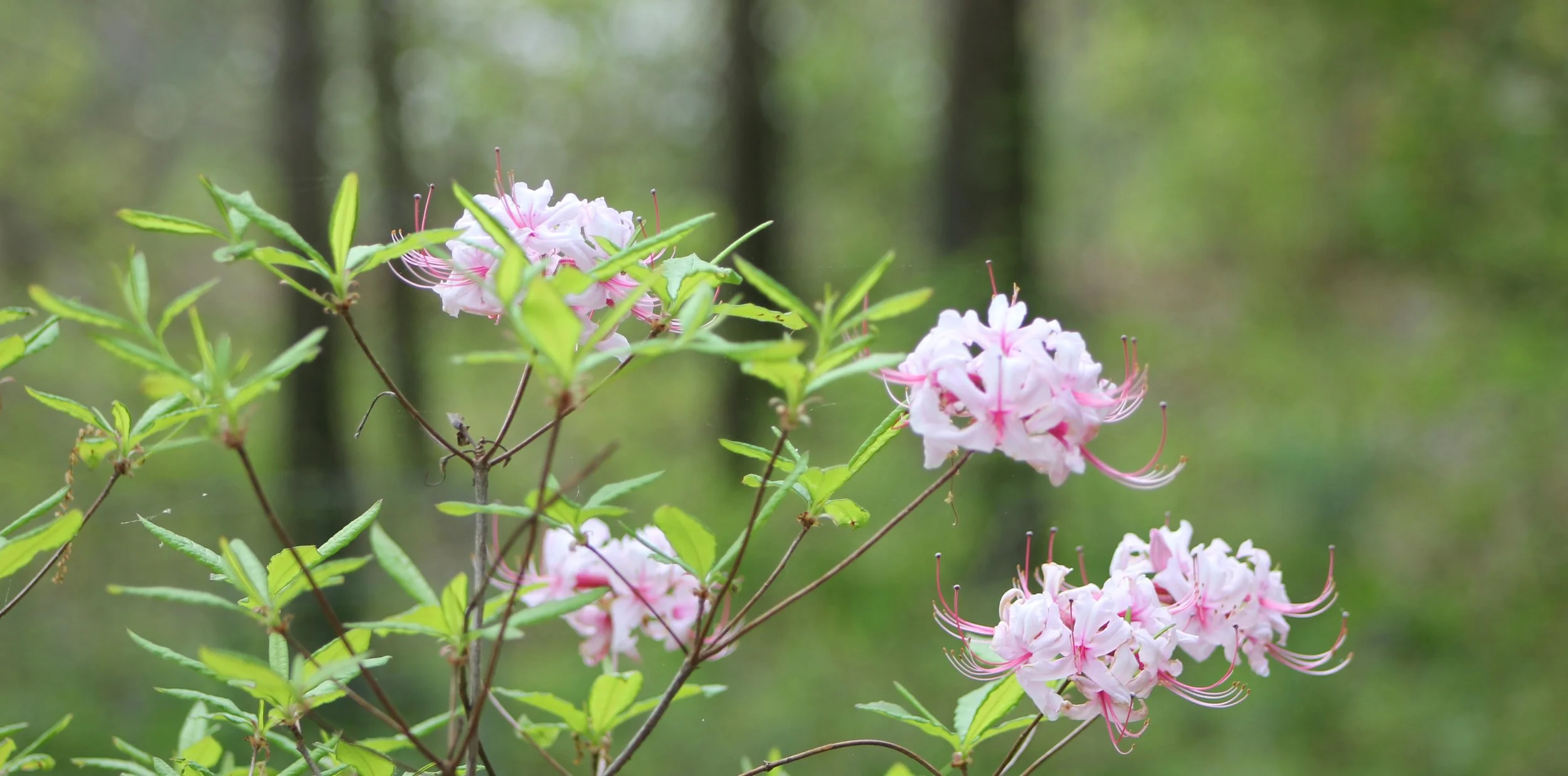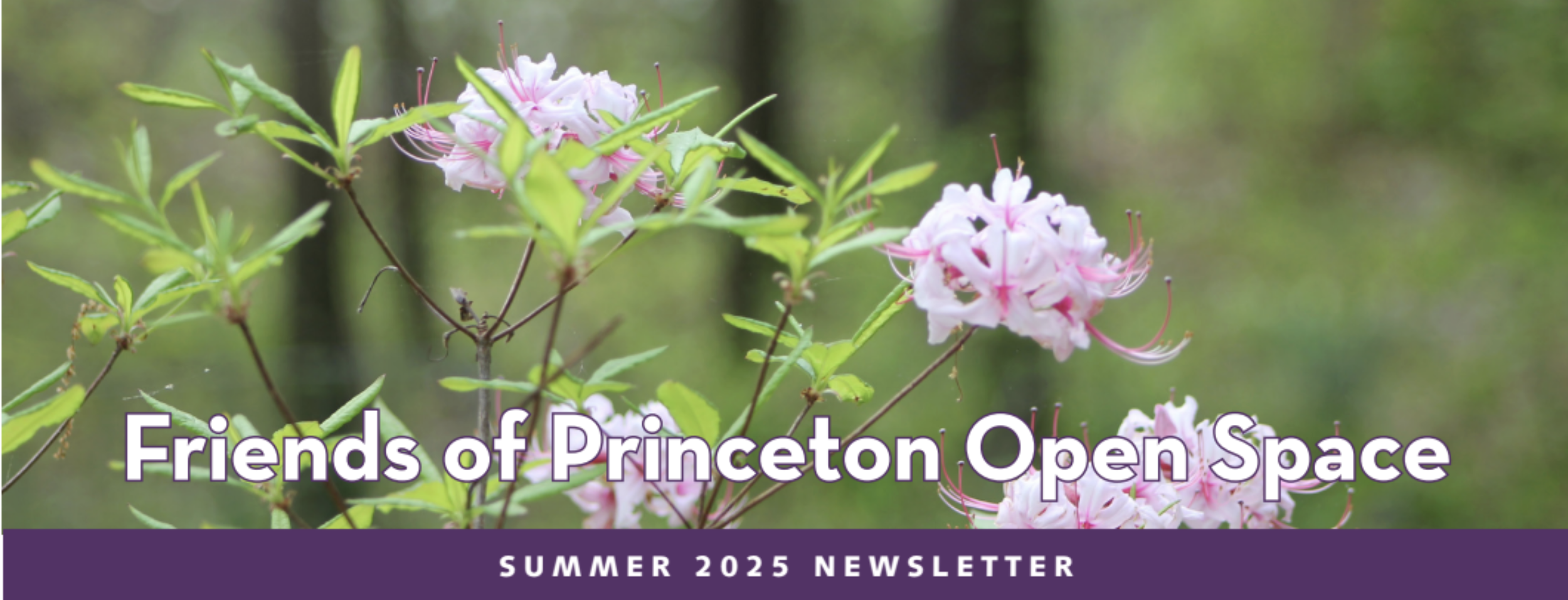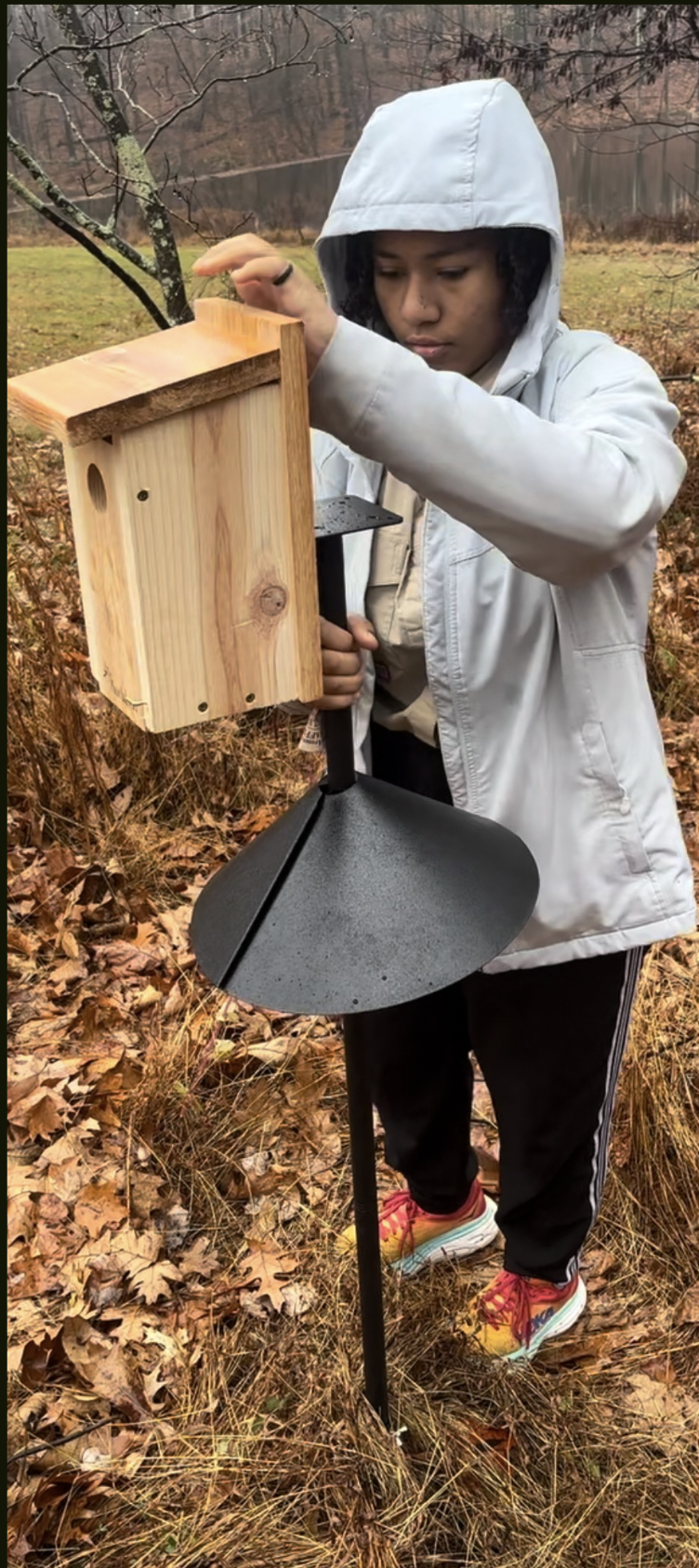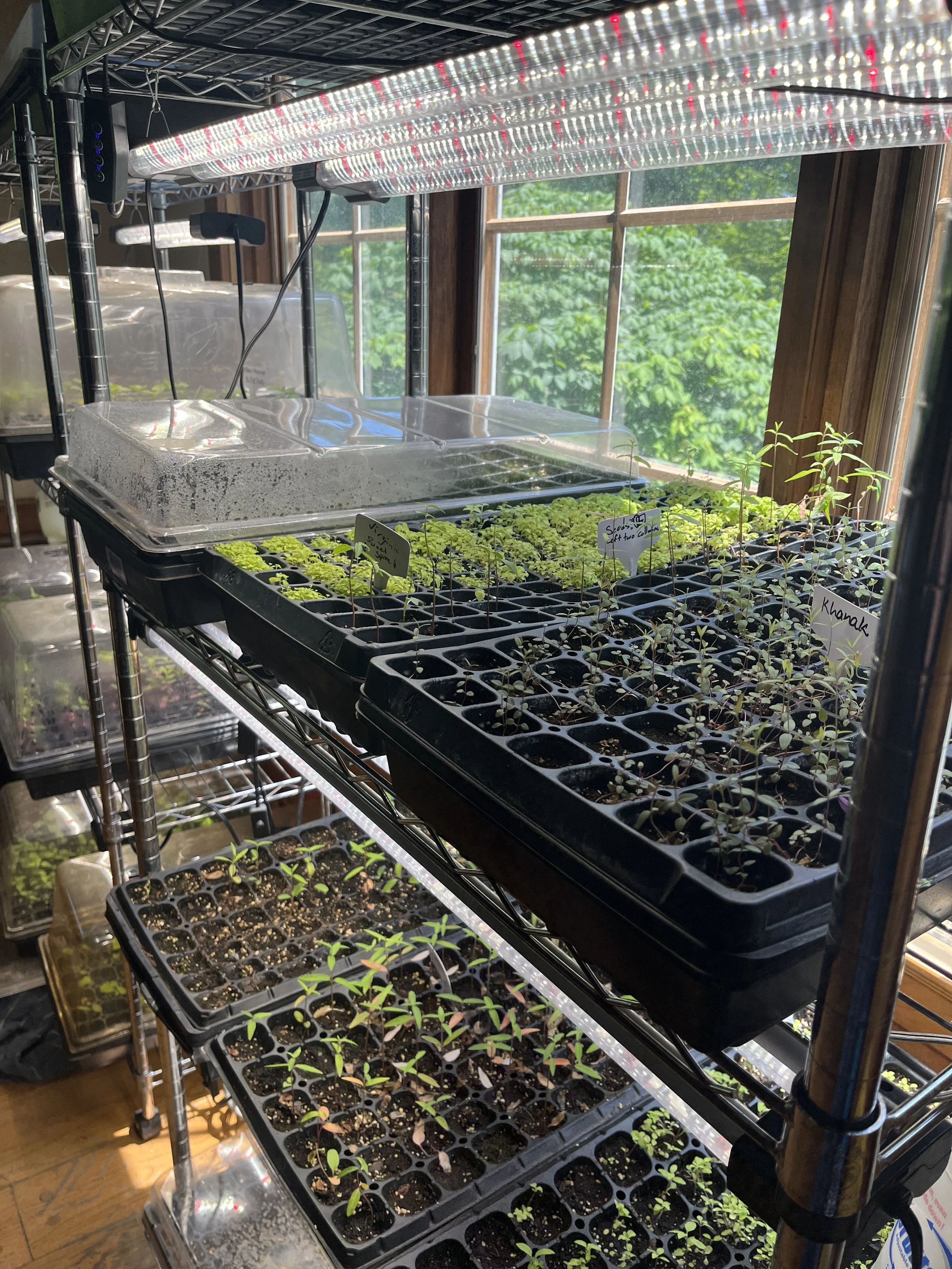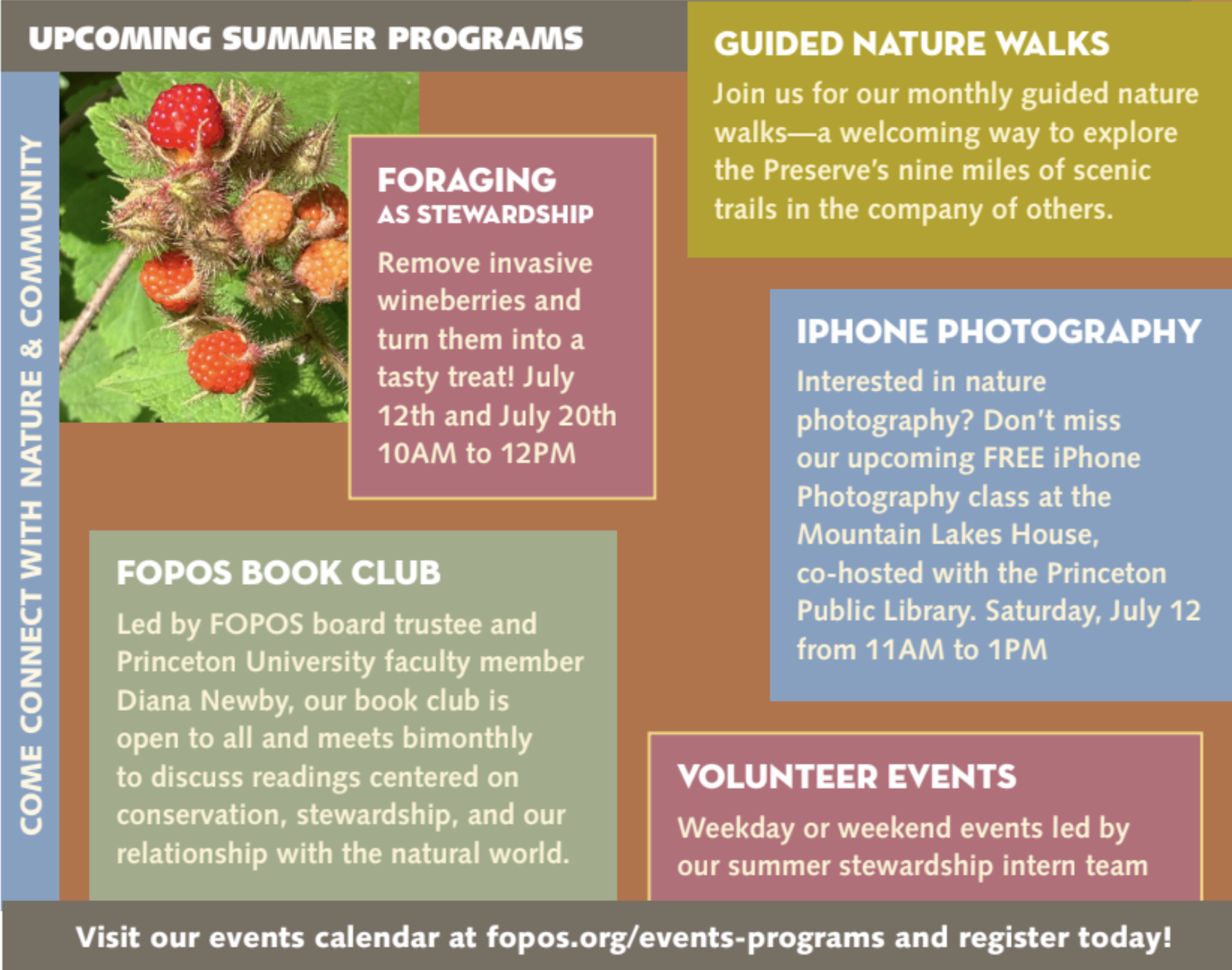LAND PRESERVATION AND ORGANIZATIONAL HIGHLIGHTS
We are pleased to share several exciting developments on the land preservation front. Last November, we celebrated the opening to the public of the 153-Acre Wood on Province Line Road, a major milestone in our ongoing efforts with Princeton and nonprofit partners to protect significant forested lands and the ecosystem services they provide. This was followed by the closing on another important wooded parcel to whose acquisition we contributed, 90 acres on Herrontown Road opposite the Herrontown Woods Preserve. We also contributed to the acquisition of a public access easement and the purchase, respectively, of two lots owned by the Princeton Academy of the Sacred Heart (PASH). This, together with the Municipality’s purchase of the 25-acre Shechtel lots on July 10th, completed a critical link between the 153-Acre Wood, the PASH campus, and the Great Road corridor leading into central Princeton. These acquisitions enhance wildlife habitat and biodiversity while contributing to regional climate resilience and flood mitigation efforts.
In April, Friends of Princeton Open Space was proud to sponsor the Friends of Hopewell Valley Open Space’s 18th annual NJ Invasive Species Strike Team Conference, where our leadership team engaged in valuable conversations and training on best practices for managing invasive species. On May 4th, we held our annual meeting at the Mountain Lakes House, where we welcomed two new board members, Diana Newby and Andrea Honore, reflected on our accomplishments from the past year, and enjoyed a compelling presentation by Princeton University Ph.D. candidate Gates Dupont, titled “What’s Happening with Our Feathered Friends? Untangling Bird Declines.”
As we look ahead to the second half of 2025, our board is actively engaged in a strategic planning process supported by the Bunbury Fund of the Princeton Area Community Foundation. We are excited about the path forward and warmly invite you to join us at the Preserve in the months to come.
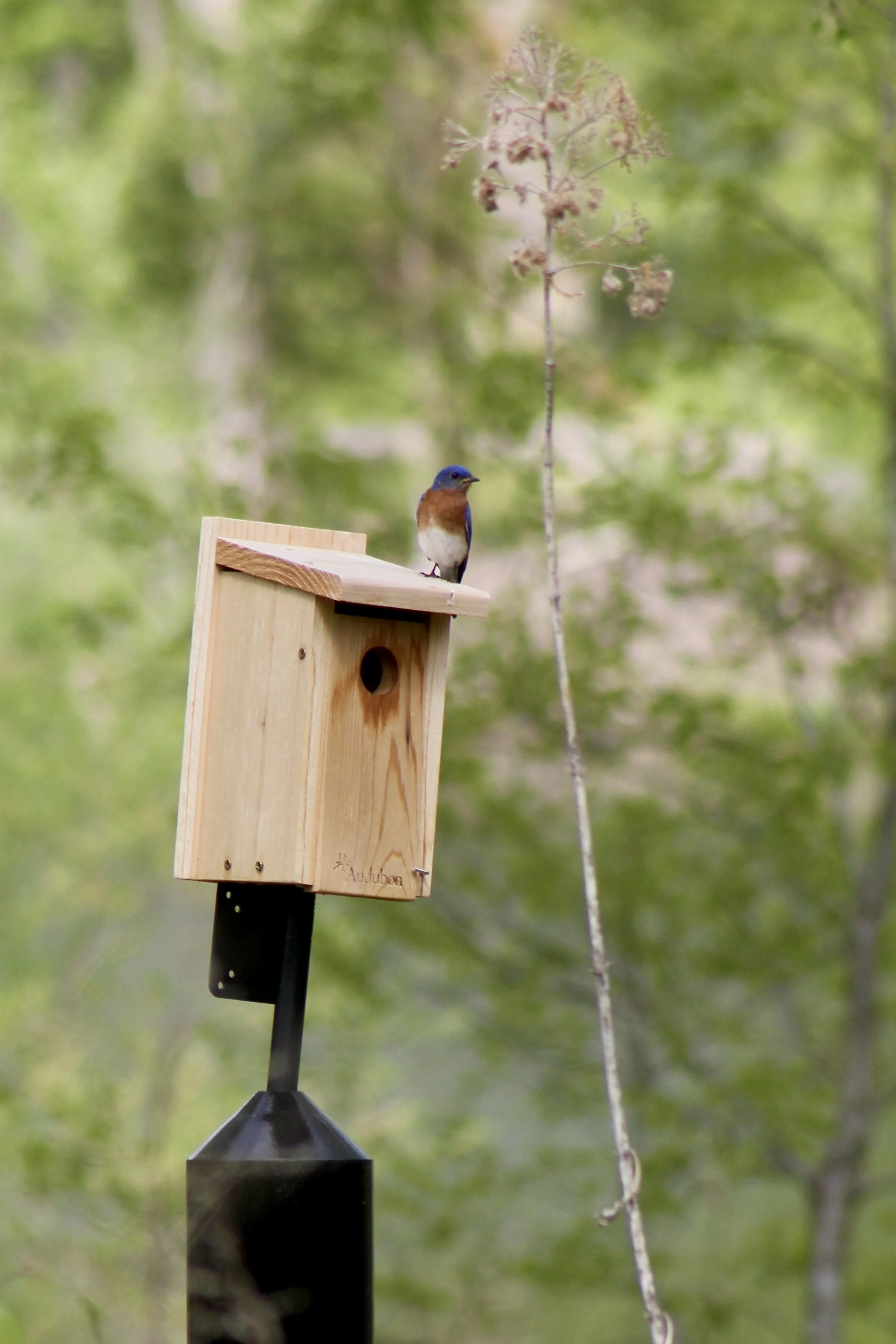
NEW EASTERN BLUEBIRD BOXES THANKS TO LOCAL EAGLE SCOUT
FOPOS has a proud tradition of partnering with local scouts, and we’re excited to share the success of a recent Eagle Scout project. Euphenia, a local scout, built and installed several nesting boxes to support Eastern bluebirds at the Preserve. This species saw sharp declines last century, but thanks to initiatives like these, their numbers are rebounding. We’re thrilled to report that one of the boxes is already home to a pair of bluebirds, spotted during our May bird walk!
A TWO-WEEK CELEBRATION OF EARTH DAY AND STEWARDSHIP
This year, we extended our Earth Day celebration into a two-week series of events centered around land stewardship and community education. WuXi Biologics, ZS, and KSS Architects returned to volunteer with us again, tackling invasive vines in the riparian restoration site and planting more than a dozen native trees, including pawpaw, persimmon, and sweetbay magnolia. They also installed a variety of herbaceous perennials and shrubs such as Azaleas, Columbine, and Swamp milkweed. We are grateful to our corporate volunteer groups and the Washington Crossing Audubon Society for supporting this project through the Holden Grant program.
Earth Day volunteers as well as teams from Verus LLC, Sun Pharmaceuticals, and Tata Consultancy Services, worked in the forest restoration site, removing bags upon bags of invasive garlic mustard. To help suppress invasive Japanese stiltgrass, volunteers installed native plant plugs including Mountain mint, Golden ragwort, and Nimblewill grass. These plants were funded through the generosity of the Garden Club of Princeton’s Partners for Plants program.
On our Earth Day nature walk, participants enjoyed a vibrant display of spring flowers, with blooming redbuds and a spectacular sea of trout lilies in John Witherspoon Woods. Long-time volunteers Matt and Shannon shared creative culinary uses for garlic mustard, transforming an invasive plant into tasty recipes during the popular Foraging as Stewardship event. Across all events, we partnered with six local corporations, logged over 250 volunteer hours, planted more than 275 native plants, and removed 20 bags full of invasive garlic mustard! A truly inspiring demonstration of the power of community-driven conservation!




BEECH LEAF DISEASE MANAGEMENT PLAN
Last summer, FOPOS’s stewardship interns surveyed 300 beech trees in the Mountain Lakes natural area and found that every single one showed signs of Beech Leaf Disease (BLD). This fast-spreading and deadly disease is caused by a microscopic nematode that damages leaf tissue. Symptoms include dark banding between veins, early leaf drop, and, typically, tree death within five to seven years. Without intervention, widespread loss of beech trees will create canopy gaps, encourage invasive plant growth, and degrade wildlife habitat. Beech trees support a complex ecosystem, providing food for turkeys, grouse, and small mammals, while also hosting insects and nesting birds.
With generous support from Washington Crossing Audubon Society through the Holden Grant, FOPOS has launched a beech leaf disease management plan. This program is critical to protecting biodiversity, especially along the sensitive Princeton Ridge corridor, housing some of the oldest trees in the Mountain Lakes natural area. Working with the municipal arborist, several specimen trees will be treated, and monitoring and management will continue across the upcoming years.
Since we anticipate losing many beech trees, restoring the next generation of forest canopy is crucial. In the coming months, FOPOS will host several volunteer sessions to complete stewardship tasks that offer resiliency to affected beech trees. Volunteers will install protective cages around future canopy trees, such as oaks and tulip poplar saplings, and assist with invasive species removal near establishing tree stands.
Join our summer volunteer crew and help restore the resilience of our forests!
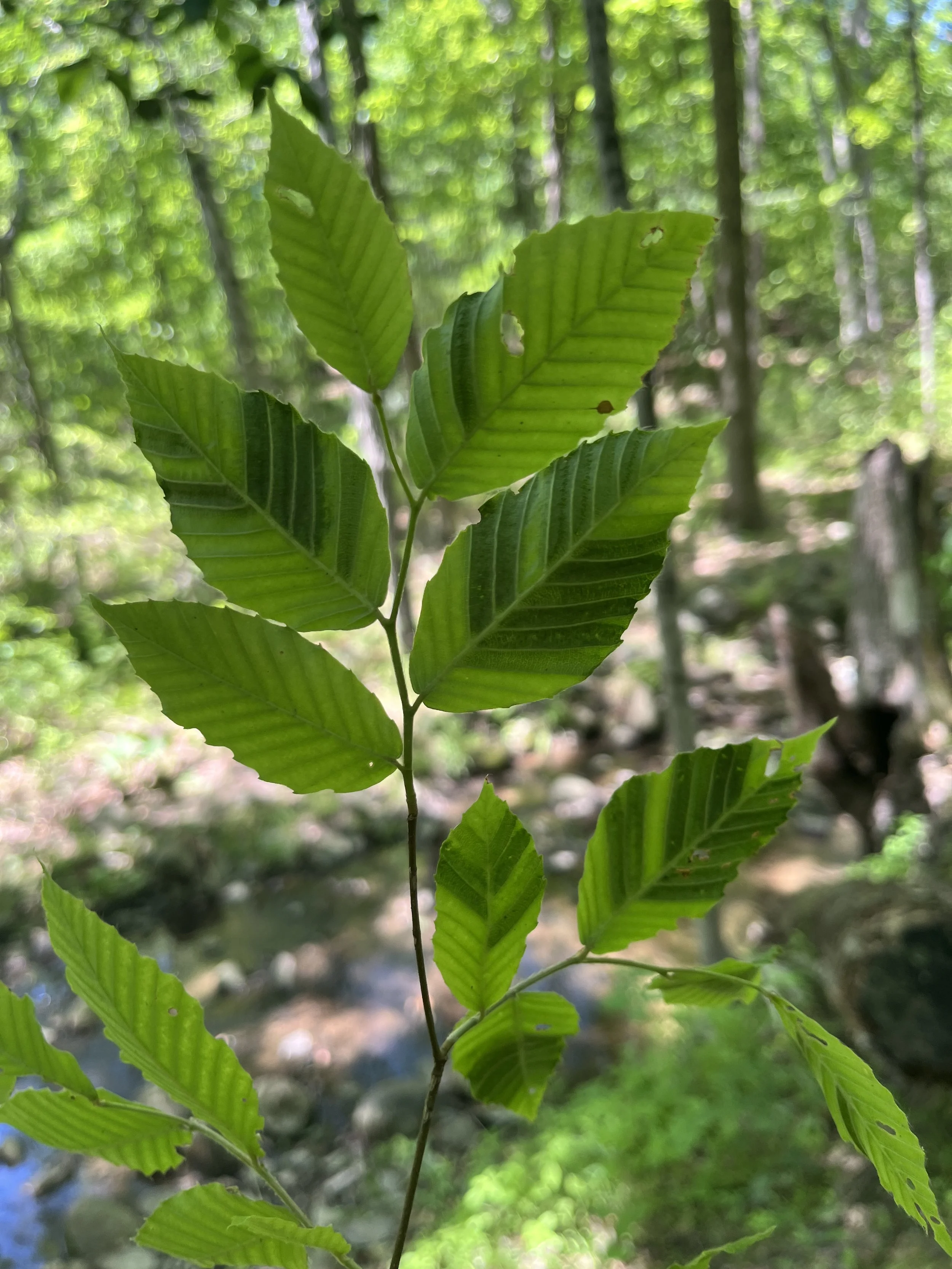

TRAIL & BRIDGE IMPROVEMENTS UNDERWAY
With funding from the NJ Historic Preservation Trust and the Municipality of Princeton, bridge restoration has begun on the historic stone arch bridge along the red trail as well as the stone footbridge on the green trail. These bridges have suffered structural erosion and damage over many years, including during Tropical Storm Ida. Please note that parts of the Red and Green Trails will be closed during construction and restoration.
In the coming months, our volunteer trail crew will be installing new trail markers, building a new green trail extension from the red trail west to Mountain Brook, and rebuilding steps from the red trail west along Coventry Farm fence down to the green trail. Want to help? Join our trail crew. Many hands make light work!
PLANT PROPAGATION PROGRAM
Our seed propagation setup was made possible through the support of the Garden Club of Princeton's Partners in Plants program and is helping native plants thrive year after year. Volunteers have gathered, processed, and planted seeds from the Preserve. These plants will soon be potted up, nurtured, and eventually planted in our restoration sites. Thank you to our amazing volunteers and the Garden Club of Princeton for growing this initiative with us!

